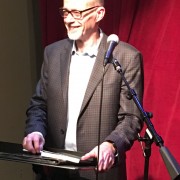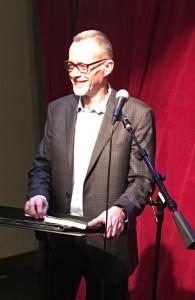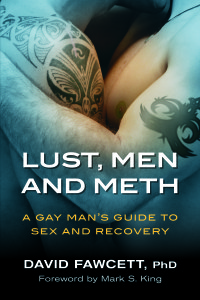
This article was originally posted on TheBody.com on David's blog "Riding the Tiger: Life Lessons from an HIV-positive Therapist"
O for God's sake
they are connected
-Muriel Rukeyser “Islands”
Several widely-televised incidents recently exemplified the harsh and frightening polarization we are experiencing in our society. The first was at the Republican debate at the Reagan Presidential Library where the audience spontaneously clapped and cheered when Governor Rick Perry's record of 234 executions was discussed. The second was a clear shout from the audience of "let them die" when Representative Ron Paul was asked hypothetically if he would treat an uninsured individual who required medical attention. For me, these were stunning moments of disbelief.
Themes of independence, personal responsibility, and self-sufficiency have long been at the core of American culture and, overall, I believe they have served us well. But they have been balanced and tempered by a belief in a role for government that provides services and infrastructure beyond the capabilities of any single individual. Indeed, a functioning democracy surely relies upon a degree of empathic feeling among its citizens. From a medical point of view, anyone who states they can take care of themselves (and that they will have nothing to do with the needs of others) has either had astoundingly good luck in terms of health or is so blinded by ideology that they have become delusional.
What does this mean for HIV? Is it realistic for anyone to be able to pay for their own medications? Most persons with HIV have experienced periods when they were too weak to care for themselves. Should they be abandoned? Earlier this year, I heard a nationally- prominent HIV/AIDS advocate state that every year in Washington, for 25 years, he has believed that politicians would ultimately do the right thing in terms of AIDS funding. He stated that this year, for the first time, this might not be the case, and that indeed essential funding and the lives are in jeopardy.
Ironically, self-sufficiency has been central to the AIDS epidemic. In the 1980s and 1990s, when government was not responding, we at the grassroots level took matters into our own hands. We were the ones who cared for the sick, who sat with them when their families turned their backs, and who did not let them die alone. It was demand from the bottom up that fueled services and drug research, and it was persons living with the virus who gave our own bodies for drug trials.
It seems now that large (and growing) segments of our society have come to view basic compassion, the emotional capacity to experience another’s pain, as a character defect, yet it is an essential element of what makes us human. Neuroscience is beginning to provide some intriguing clues about compassion. Each of us has "mirror neurons" in our brain that allow us to emotionally simulate and actually experience the pain of others, which causes us to feel empathic distress. That is, at some level we experience the emotions of others as if they were happening to us. Such feelings are thought to motivate pro-social behavior. These mirror neurons have been observed in both primates and other species, including birds. And while they certainly play a role in imitation and learning, they appear to have an emotional component as well.
This begs the question: how can there be applause about executions and shouts of "let them die" if we have these mirror neurons that promote compassion? Buddhists might say it concerns the self-centered focus that flows from the fundamental delusion of believing one is a "separate self," essentially disconnected from others. This doesn’t have to be the case. Intriguing scientific research utilizing fMRI studies is beginning to map out areas of the brain that are activated by compassion. This research is documenting the increased capacity of experienced meditators (>10,000 hours) to rid themselves of a “self-focused delusion” and thereby understand their integral connection with others and experience more intense compassion for other persons.
When individuals see themselves as essentially separate from others, normal "empathic distress" can actually trigger memories of emotionally painful or upsetting events from their own past. This can, in turn, motivate them not to experience painful compassion for someone else but actually throw up a defensive posture that reinforces separateness and disconnection from others.
When empathic distress is very intense, it can move someone entirely out of a compassionate mode, according to Martin Hoffman (a theorist in this area). Other factors that negatively impact the ability of empathic distress to translate into compassion include familiarity bias (identifying strongly only with an “in-group”) which inhibits identifying with the experiences of someone who is “different,” and habituation (repeated exposure to distress over time).
What does all this mean for the HIV/AIDS community? I believe we have to continue our grassroots tradition of activism. Stigma blossoms where there is invisibility and silence. Such callous and immoral shouts as "let them die" need to be challenged. The destructive myth that we are all separate from one another, and that anyone experiencing HIV (or any illness, for that matter) is on their own, will lead to further stigma, cuts in essential funding, and deaths. It also contributes to the fallacy that our destinies, as individuals and as a society, are not inextricably bound together.
Ironically, despite my anger, I have some level of compassion for these rigidly self-focused, "self-reliant" people. While this certainly doesn't mitigate their destructive potential, I believe that anyone who applauds executions or shouts "let them die" is, at some emotional level, in pain. They might benefit from the words of the Dalai Lama: "if you want others to be happy, practice compassion…if you want to be happy, practice compassion."







